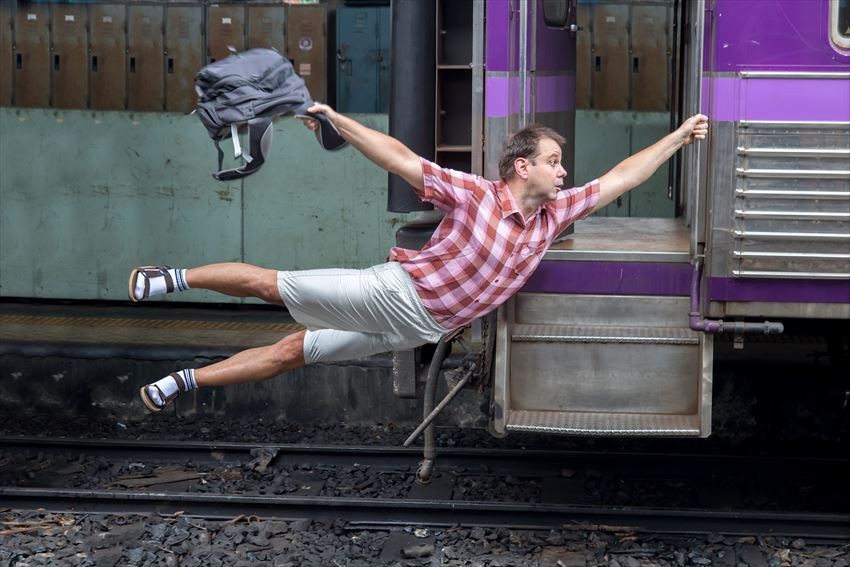
As long as it's not rush hour, most foreign visitors will find Japan's trains are a comfortable mode of transport.
Trains are invariably spotlessly clean, passengers speak in hushed voices, and everyone keeps to themselves.
Of course, there is the occasional drunk or unruly passenger and screaming baby. But it's a far cry from the sometimes dirty, loud, and sometimes downright dangerous public transport in some other major world cities.
The reason why the trains are so clean and comfortable is because of the unspoken code of conduct that passengers observe.
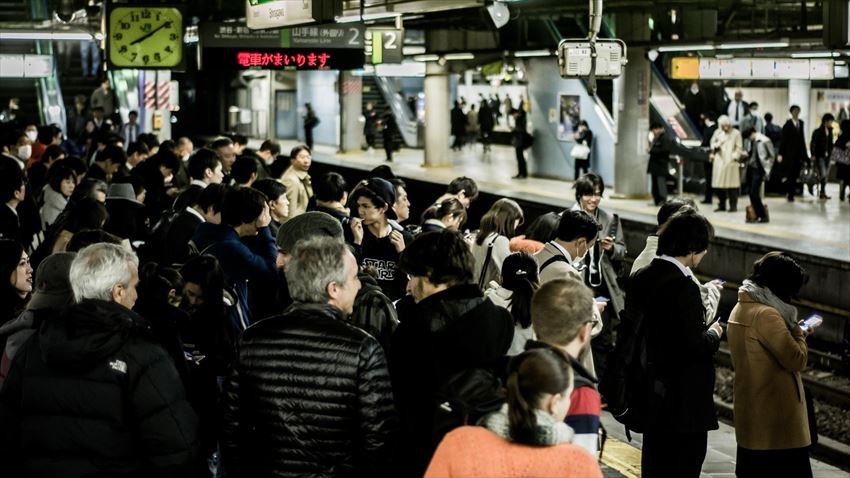
Wait Your Turn to Board the Train
The platform is conveniently marked to show where each train door will be. Locals stand in two orderly lines, one on each side of the door (or four lines during peak times).
When the train comes, people wait to allow passengers in the train to get out first before filing in.
Yes, some people will push and shove, but as a visitor, it's best to wait patiently in line. You won't make any friends by pushing ahead or rushing to get on.
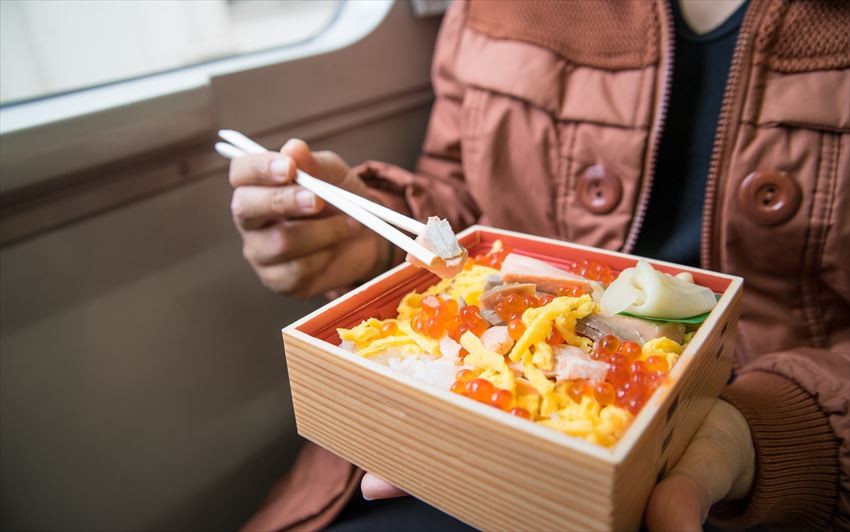
Do Not Eat on the Train
Unless it's a shinkansen (bullet train) or some other long-distance service, it's not polite to eat food while riding.
If you're hungry, you can eat a snack on the platform or visit a small noodle shop often found inside the station.
If you must eat, choose a small snack or something like bread (nothing smelly) and try to minimize chewing noises.
If you're carrying food to eat later, leave the smelly stuff at home. There are few things more unpleasant than smelling someone else's garlic during a long train ride.
Do Not Talk in a Loud Voice
The best volume for train conversations is just low enough that other people can't tell what you're saying.
Talking on the phone is only appropriate in an emergency. If you get a call while riding, either whisper that you are on a train and can't take the call and hang up, or just mute the phone, get off at the next stop and call the person back.
Ringtones and alarms are disruptive, too, so keep your phone on silent mode for the duration of the ride. The same goes for music played through earphones, so keep the volume down.
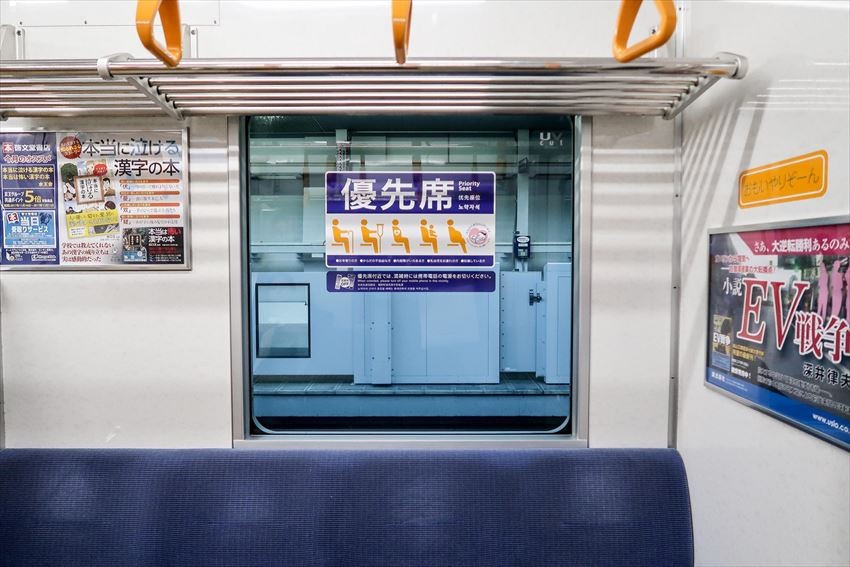
Respect the Designated Special Needs Areas on The Train
Most train cars have "Priority Seating." These are for pregnant women, disabled or elderly passengers, or people with small children.
You are free to sit in these seats if they're unoccupied, but if you see someone who needs to sit down, make sure to offer them your seat.
Some of the busiest train lines have women-only cars during rush hour to prevent women from getting groped on the train. Children, the disabled, and male caretakers of the disabled are also allowed to board these cars.
The women-only car is usually at the very front or back of the train, and is clearly marked. If you're not female, make sure that you don't get on one of these cars during the designated women-only hours, or you may have a horde of angry females staring at you.
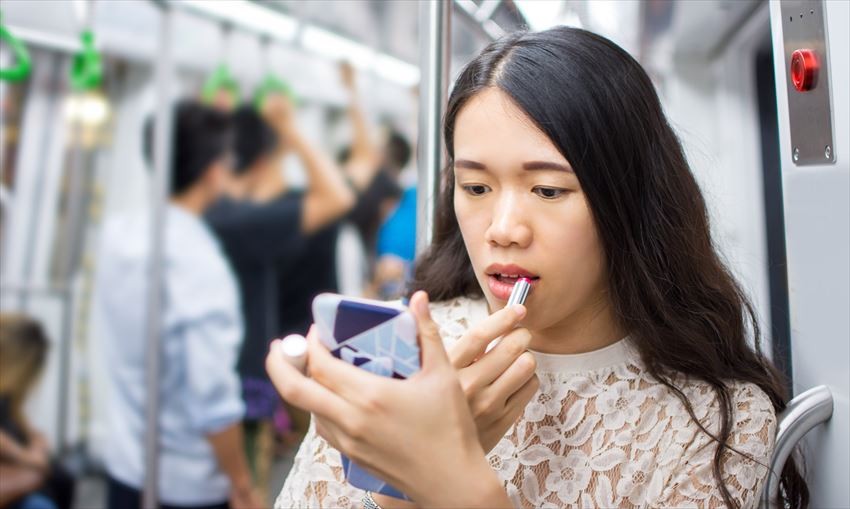
Do Not Put Makeup on in the Train
It's controversial, and you will probably see young Japanese doing it, but many in Japan consider it inappropriate to fix your hair or makeup on the train.
Some consider it to be sloppy or are irritated clouds of powder or strong scents. Others see fixing your makeup as an intimate act that should be done in privacy, similar to getting dressed.
In short, it makes a lot of people feel uncomfortable and as such is inconsiderate.
Putting on lip balm or fixing your lipstick won't turn any heads. But you may get stares if you do your entire hair or makeup routine on the train.
----
Were any of these train manners surprising to you? Do you agree or disagree with these points of etiquette? Tell us your thoughts in the comments below!

Comments